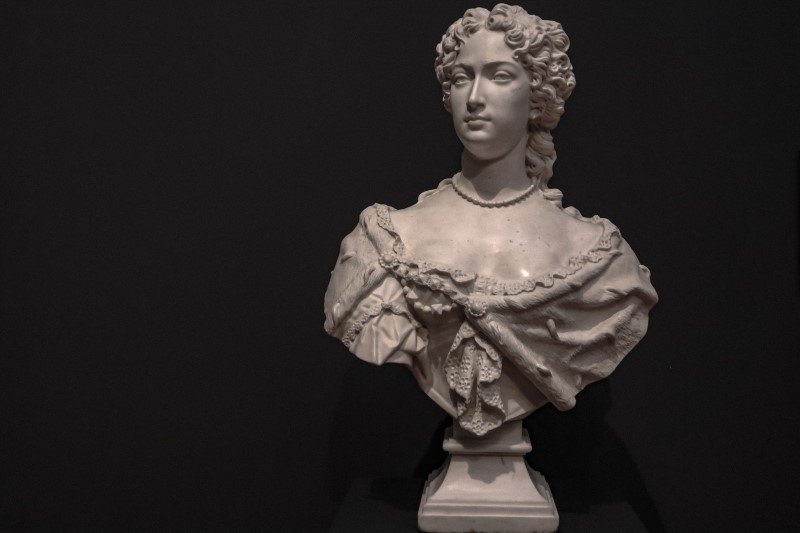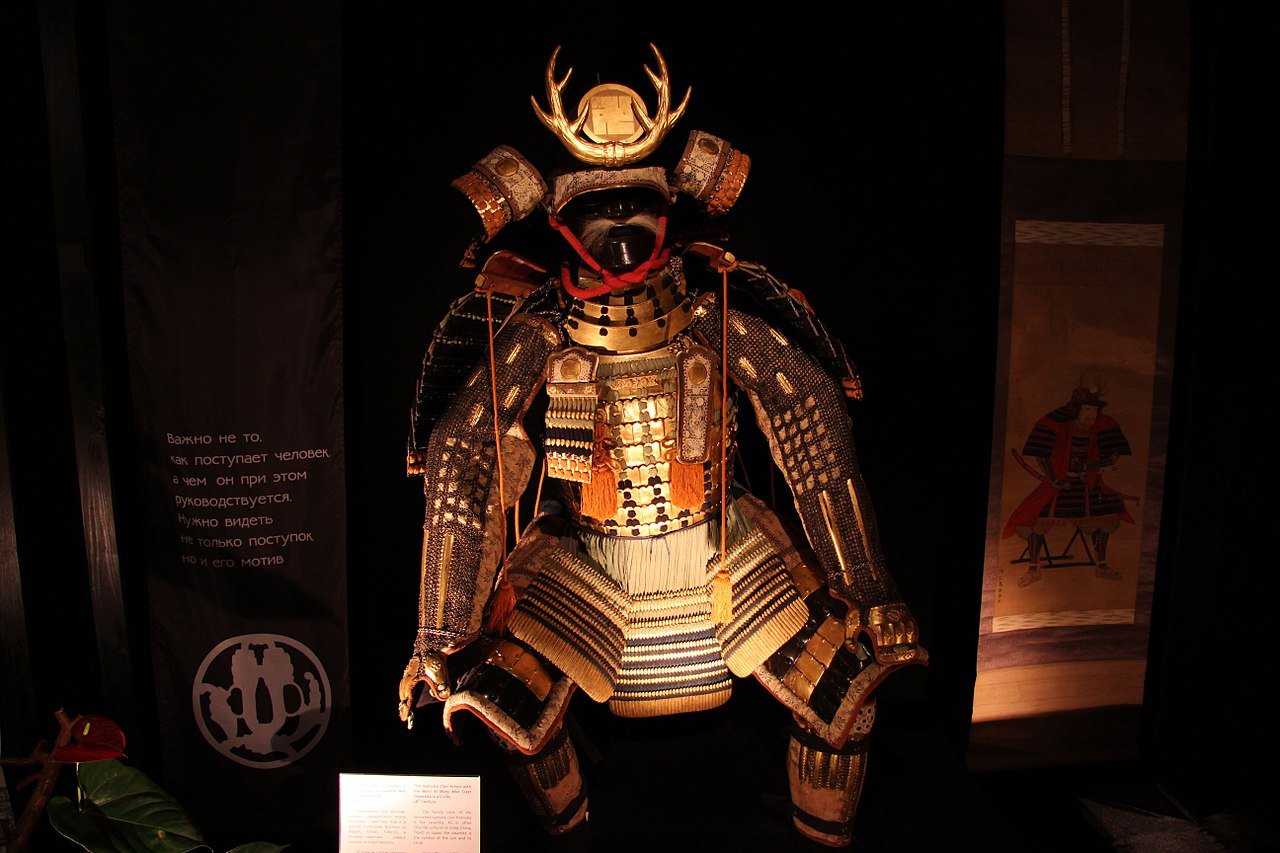The Significance of Medusa in Greek Mythology
In Greek myths, Medusa is more than just a creature who turns others to stone. She showcases nature’s two sides—the stunning and the monstrous. Her change from a lovely lady to a scary beast is a warning about anger from gods and the pull of off-limits wants.
The Medusa myth emerged during ancient Greece, a time when storytelling served as a means of imparting moral lessons, explaining natural phenomena, and preserving cultural identity. Medusa’s tale resonated with the Greek populace, reflecting their fears, beliefs, and fascination with the supernatural.
The Gorgon Sisters: Medusa and Her Siblings

Medusa’s Origins in the Gorgon Trio
Medusa in Greek mythology was one of three Gorgon sisters, daughters of the primordial sea deities Phorcys and Ceto. Unlike her sisters, who were immortal, Medusa was mortal, a distinction that added to her mystique and vulnerability.
Stheno and Euryale: The Lesser-Known Gorgons
While Medusa received the spotlight, her sisters, Stheno and Euryale, were equally formidable. Stheno, the eldest, possessed the power to strengthen others, while Euryale, the youngest, had the ability to make her gaze even more petrifying than Medusa’s.
Powers and Appearances of the Gorgon Sisters
All three Gorgon sisters shared common characteristics, including bronze claws, sharp fangs, and serpent hair that could inflict venomous bites. While Medusa was often depicted as a hideous monster, some ancient depictions portrayed her as a beautiful woman, emphasizing the contrast between her beauty and her petrifying gaze.
Medusa’s Tragic Tale
The Curse of Medusa in Greek mythology
Transformation into a fearsome Gorgon of Medusa in Greek mythology was a consequence of Poseidon’s sexual assault upon her in Athena’s sacred temple. Athena, enraged by the violation, punished Medusa by transforming her beauty into monstrousness, granting her the petrifying gaze.
Medusa’s Encounter with Perseus
Medusa’s fate intertwined with the heroic journey of Perseus, son of Zeus and Danae. Tasked by King Polydectes to retrieve Medusa’s head, Perseus embarked on a perilous quest, guided by the gods.
The Petrifying Gaze: Myth or Reality?
Medusa’s petrifying gaze remains an enigma, a mythical element that both fascinates and terrifies. While it is often interpreted as a supernatural power, some scholars suggest it may have symbolized the paralyzing effects of fear and awe.
Role of Medusa in Greek Mythology

Medusa’s Role in the Clash of the Titans
Medusa did more than just meet Perusues. She was important in Titanomachy, a big battle between Titans and Olympian gods. Zeus used her scary stare to help him win against the Titans.
Medusa in Greek mythology as a Symbol of Female Monstrosity
Medusa’s portrayal as a monstrous female figure has sparked feminist discourse. While some view her as a representation of female power and fearlessness, others interpret her as a symbol of societal fears and misogyny.
Medusa’s Legacy in Greek Culture
Medusa’s image permeated Greek culture, appearing on pottery, sculptures, and mosaics. Her petrifying gaze served as a protective motif, adorning buildings and amulets to ward off evil spirits.
The Slayers of Medusa in Greek mythology
Perseus and the Heroic Quest
Perseus, guided by the gods, embarked on a perilous quest to retrieve Medusa’s head. Equipped with Athena’s reflective shield, Hermes’ winged sandals, and Hades’ invisibility helmet, he ventured into the Gorgons’ lair.
Athena’s Involvement
Athena played a crucial role in Perseus’ quest, providing him with the tools and strategies necessary to overcome Medusa’s petrifying gaze. Her involvement highlights the significance of divine intervention in Greek mythology.
The Aftermath of Medusa’s Death
After successfully decapitating Medusa in Greek mythology, Perseus used the head’s petrifying power to defeat his enemies and fulfill his obligations. Medusa’s death marked a turning point in Greek mythology, solidifying the power of the Olympian gods and establishing Perseus as a legendary hero.
Medusa’s Portrayal in Art and Literature
Ancient Depictions of Medusa
Ancient Greek art vividly captured Medusa’s fearsome image. Sculptures and paintings depicted her with serpent hair, sharp fangs, and bronze claws, emphasizing her monstrous nature.
Medusa in Renaissance Art
During the Renaissance, Medusa’s image underwent a transformation. Renaissance artists, inspired by classical antiquity, portrayed her with a more humanistic touch, blending beauty and monstrosity.
Modern Interpretations in Literature
The story of Medusa has sparked countless pieces, from old sagas to current books. Authors have dug into her persona, investigating her drives, her suffering, and her lasting influence.
Unraveling the Medusa Symbolism

Medusa in Greek mythology as a Symbol of Fear
Medusa’s petrifying gaze represents the paralyzing effects of fear, the power it holds over our minds and bodies. Her image serves as a reminder of the dangers that lurk in the unknown, the potential for transformation from beauty to monstrosity.
Medusa as a Feminist Icon
Medusa’s complex and tragic story has resonated with feminist thinkers. Some view her as a victim of patriarchal oppression, a symbol of female power and resilience in the face of male dominance.
Medusa in Greek mythology in Greek mythology as a Symbol of Tragedy
Medusa’s story tells us how beauty can be delicate, how immense anger can change things, and how wanting what we can’t have can lead to trouble. Her sad end is a lesson that warns us to act wisely dealing with gods and humans.
Medusa in Greek mythology in Pop Culture
Medusa in Movies and Television
Medusa’s enduring appeal has made her a popular figure in film and television. She has appeared in numerous adaptations of Greek myths, horror films, and fantasy series, often portrayed as a formidable antagonist or a complex protagonist.
Medusa in Video Games
Medusa’s presence extends to the realm of video games, where she often serves as a powerful boss or a recurring enemy. Her petrifying gaze and snake hair pose a significant challenge to players, adding an element of fear and excitement to the gaming experience.
Medusa’s Influence in Fashion and Tattoo Art
Medusa’s image has transcended mythology, influencing fashion and tattoo art. Her serpent hair and petrifying gaze have become popular motifs on clothing, accessories, and tattoos, symbolizing strength, fearlessness, and the duality of nature.
Fascinating Facts about Medusa in Greek mythology
Medusa’s Snake Hair: Mythical Explanation
Some interpret Medusa’s serpent hair as a representation of the chaotic and untamed forces of nature, symbolizing the potential for both beauty and destruction. Others suggest it may have originated from ancient depictions of women wearing snake-like headdresses.
The Real Medusa: Geological Phenomenon
In geological formations known as “medusa heads,” mineral deposits resemble Medusa’s serpent hair, creating a fascinating natural phenomenon that mirrors the mythical creature’s appearance.
Role of Medusa in Greek mythology in Astronomy
The constellation Perseus contains a star cluster named Medusa, a celestial representation of the mythical Gorgon. This celestial tribute highlights Medusa’s enduring presence in human culture and her ability to captivate the imagination.
Crafting Medusa Tattoos: Inspiration and Design
Popular Medusa Tattoo Styles
Medusa tattoos come in various styles, ranging from realistic depictions to stylized interpretations. Some designs emphasize her monstrous nature, while others focus on her beauty and femininity.
Symbolism in Medusa Tattoos
Medusa tattoos carry a variety of symbolic meanings. They may represent strength, power, and resilience, while also symbolizing fear, duality, and the transformative power of the gaze.
Tips for Getting a Medusa Tattoo
When considering a Medusa tattoo, it is essential to choose a reputable tattoo artist who can capture the desired design and symbolism. Research different styles and meanings to find a Medusa tattoo that resonates with you.
Medusa in Greek mythology in Contemporary Art
Modern Art Inspired by Medusa
Contemporary artists have reimagined Medusa’s image in various art forms, challenging traditional interpretations and exploring new perspectives. Her figure has been used to address social, political, and cultural issues, offering fresh insights into her complex symbolism.
The Impact of Medusa’s Representation on Contemporary Art
Medusa’s presence in contemporary art reflects the ongoing fascination with her myth and its enduring relevance. Her image has become a powerful tool for artists to explore themes of beauty, monstrosity, power, and transformation.
Up-and-Coming Artists’ Perspectives
Emerging artists are incorporating Medusa’s imagery into their work, bringing new interpretations to the forefront. Their diverse perspectives and creative approaches contribute to the evolving representation of Medusa in contemporary art.
Frequently Asked Questions (FAQs)
Who Was Medusa in Greek Mythology?
Medusa in Greek mythology was one of three Gorgon sisters, known for her petrifying gaze that turned living beings into stone. She was the only mortal Gorgon, making her a unique and tragic figure in Greek mythology.
What Are Some Famous Medusa Myths?
The most famous Medusa myth involves her encounter with the hero Perseus, who was tasked with retrieving her head. Other notable myths include her transformation from a beautiful woman to a fearsome Gorgon and her role in the Titanomachy, the clash between the Titans and Olympian gods.
How Did Medusa’s Gaze Turn People into Stone?
Medusa’s petrifying gaze was said to possess a supernatural power that instantly turned living beings into stone. The exact mechanism of this transformation remains a mythical enigma, but it symbolizes the paralyzing effects of fear and the power of the supernatural.
How Has Medusa Been Depicted in Modern Times?
Medusa has been depicted in various forms of modern media, including movies, television shows, video games, and literature. She is often portrayed as a powerful antagonist or a complex protagonist, reflecting her enduring presence in human culture.
What Is the Significance of Medusa in Greek mythology in Feminist Discourse?
Medusa’s tale has been interpreted in various ways within feminist discourse. Some view her as a victim of patriarchal oppression and a symbol of female power, while others emphasize the complexities of her character and the broader societal implications of her myth.
Are There Any Medusa Sightings in Modern Astronomy?
In the constellation Perseus, a star cluster named Medusa can be observed, representing the mythical Gorgon in the celestial realm. This celestial tribute highlights Medusa’s enduring presence in human culture and her ability to captivate the imagination.
H2 Conclusion
Medusa’s myth is a captivating tale of beauty, monstrosity, and transformation. From her transformation into a fearsome Gorgon to her encounter with Perseus and her enduring presence in art and literature, Journey of Medusa in Greek mythology reflects the complexities of human nature, the power of divine intervention, and the transformative force of myths.
Legacy and Enduring Appeal of Medusa in Greek Mythology
Medusa’s impact is vast, reaching past her lore. Her likeness still captivates and motivates, symbolizing might, dread, paradox, and the altering force of a stare. Her lasting charm exists in her capacity to encapsulate human contrasts and the everlasting might of mythology.
Medusa in Greek mythology remains an enigmatic figure, her petrifying gaze and serpentine locks forever etched in human imagination. Her myth serves as a reminder of the transformative power of stories, the enduring fascination with beauty and monstrosity, and the timeless appeal of Greek mythology.






